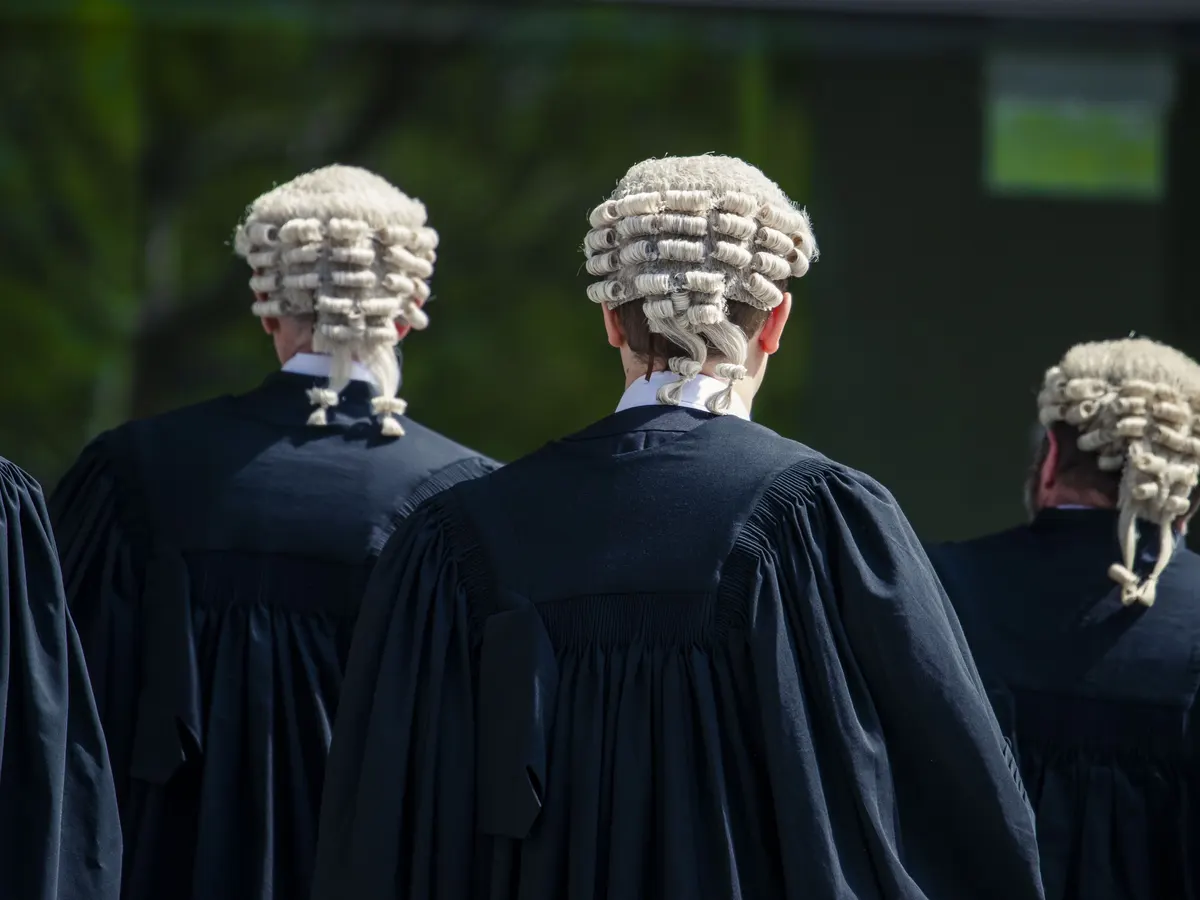
Decoding Titles in Law: Lawyer vs Solicitor vs Barrister vs Attorney Explained
Stepping into the complex world of legal terminologies can be daunting. Many people get confused with the differences between a “lawyer vs solicitor vs barrister vs attorney”? While these are all legal professionals, they each have distinct roles, qualifications, and expertise.
Key Takeaways
- Understanding the various roles and responsibilities of legal professionals is essential to choosing the right one for your needs.
- Solicitors are knowledgeable advisers, negotiators, and document drafters who may specialize in certain areas of law. Solicitors also appear in court for their clients.
- Barristers provide specialized advocacy and representation in court proceedings Barristers are usually engaged by a Solicitor to appear in more complex proceedings.
- The term Attorneys is sometimes used as a generic term to refer to a lawyer, but also might refer to trade mark lawyers specializing in trademark registration & protection, or even to a non-lawyer who represents someone in business or personal dealings, such as under a Power of Attorney.
Understanding Legal Professionals

The legal profession is a broad umbrella encompassing a variety of roles, each with its unique responsibilities and areas of expertise. While these roles often overlap, knowing the fine distinctions can provide crucial insight into the complex machine that is the legal system.
The term ‘lawyer’ is a general designation, encompassing all legal practitioners who have completed necessary legal training and have been admitted by the courts to practice as a lawyer.
However, within this broad category, there are solicitors and barristers, each with distinct roles and specializations.
The primary responsibilities of solicitors include providing legal advice, taking instructions, research, case preparation and appearing in court, whereas barristers are experts in courtroom representation and advocacy in complex matters. If you are in need of a lawyer in Queensland the first person you need to engage is a solicitor.
Lawyer: The General Term
What exactly is a ‘lawyer’? Picture a lawyer as a skilled craftsman in the realm of law, armed with the requisite knowledge and tools to dispense legal advice, draft legal documents, and represent clients in court. Just as an artist can specialize in various forms of art, lawyers can specialize in various areas of law. For instance, a lawyer might specialize in family law, handling sensitive matters such as divorce and child custody, or criminal law.
However, not all lawyers are created equal. Some prefer to stay out of the courtroom, focusing instead on providing legal advice, drafting documents, and handling negotiations. Then there are those solicitors who advocate for their clients in court also, like Bouchier Khan’s solicitors, who provide excellent advocacy for their clients in court. Then there are the barristers, the courtroom specialists, who excel in advocacy and representation. All are considered lawyers, but their roles within the legal profession differ significantly, showcasing the difference between a lawyer who is a solicitor and one who is a barrister.
Solicitor: The Adviser and Negotiator

Envision a solicitor as a trusted adviser and negotiator, skilled in handling a wide range of legal matters. Solicitors provide counsel to clients, prepare legal paperwork, and advocate on their behalf in legal issues. They act as your principal legal consultant, overseeing your legal matters, advocating on your behalf and also coordinating with law enforcement authorities for tasks such as subpoena issuance and bail applications.
Solicitors are akin to architects in the legal world, drafting a diverse range of legal documents, including court documents, such as:
- contracts
- agreements
- wills
- powers of attorney
- other legal instruments that are crucial for legally validating and safeguarding their clients’ interests.
But their role doesn’t stop there. They also provide support to clients in legal transactions and aid clients in resolving conflicts outside of court through alternative dispute resolution methods.
Specialisations and Expertise
Much like a medical doctor can specialize in various fields such as cardiology or neurology, solicitors too have the option to specialize in various areas including family, criminal, property, commercial, civil litigation, corporate, and tax law. This specialisation allows them to provide tailored legal advice to their clients based on their specific needs.
Before hiring a solicitor, clients should ensure that the professional has specific expertise and proficiency in handling the type of case they need support with and can provide specialist legal advice.
Workplace Settings
Similar to a musician who might perform in various venues, solicitors also work in a range of settings. These include:
- Corporate law firms
- Criminal law firms
- Family law firms
- Real estate law firms
- Intellectual property law firms
- Employment law firms
- Personal injury law firms
- Immigration law firms
- Environmental law firms
- Tax law firms
In these various settings, solicitors perform a wide array of tasks. Here are some examples:
- In private law firms, solicitors are responsible for providing legal advice, drafting legal documents, and representing clients in court.
- In government departments, solicitors engage in providing legal counsel, drafting and scrutinizing contracts and legislation, and representing the government in judicial proceedings.
- Within corporate legal departments, solicitors handle tasks such as offering legal counsel, creating and assessing contracts, overseeing legal disputes, and ensuring adherence to legal regulations.
Barrister: The Courtroom Specialist

If solicitors can be compared to architects in the legal realm, then barristers are certainly the master builders. These are the legal professionals who specialize in representing and advocating for their clients’ interests in court. They possess a comprehensive understanding of court procedures and etiquette, which is crucial for proficient courtroom advocacy and representation.
In the courtroom, barristers play a crucial role in presenting legal arguments, cross-examining witnesses, and making submissions to judges or juries in order to advocate for their client’s position, thereby ensuring effective representation of the client’s case. They undertake thorough case preparation, which involves analysing evidence, conducting research on legal precedents, and formulating legal strategies to be presented in court.
Advocacy and Representation
Barristers, the maestros of the courtroom, orchestrate legal proceedings with their expert advice and representation. Barristers are responsible for offering specialized legal advice and representation in court, particularly in trials, hearings, and appeals, including those at the supreme court level.
In preparing for their role in court proceedings, barristers:
- Conduct comprehensive case investigations
- Draft legal documents
- Participate in directions hearings to address dispute issues and secure required consents
- Establish distinct objectives for each witness examination
- Formulate questions to limit witness testimony
- Employ effective cross-examination techniques to bolster the defence case
These strategies, developed through undergoing practical legal training, help barristers effectively prepare for their role in court.
Relationship with Solicitors
The dynamic between solicitors and barristers can be likened to the relationship between a composer and a conductor. Solicitors handle the initial client consultation and case preparation, while barristers use their specialised skills to:
- Present the case in court
- Cross-examine witnesses
- Make legal arguments
- Provide expert advice
This relationship is characterised by effective communication, sharing of information, and coordination between the two legal professionals.
The collaboration between solicitors and barristers is commonly necessary in cases that require representation in higher courts, particularly in serious criminal matters. Solicitors enlist the expertise of barristers when specialised courtroom advocacy and representation are essential for their clients.
Attorney: A Different Designation
The term ‘attorney’ is somewhat of a chameleon, its meaning shifting depending on the jurisdiction. In the United States, an attorney, also known as an attorney-at-law, is a lawyer who has passed a bar examination and is licensed to practice law in a particular jurisdiction. On the other hand, in Australia, the term ‘attorney’ is not widely utilised across the legal profession and is primarily linked to trade mark attorneys. In Australia, we use the terms ‘lawyer’, ‘solicitor’ and ‘barrister’.
Comparing Terms Across Jurisdictions
To a non-expert, the terms ‘lawyer’, ‘solicitor’, ‘barrister’, and ‘attorney’ might appear interchangeable. However, context is key, and these terms can mean different things in different jurisdictions. In Australia, a lawyer is an individual possessing a legal practice certificate, encompassing solicitors, barristers, judges, and corporate counsel. The term ‘attorney’ is not widely utilised in Australia.
Choosing the Right Legal Professional

Our team at Bouchier Khan Lawyers are criminal defence specialists.
Selecting the appropriate legal professional is akin to picking the right tool for a specific task. It all depends on the nature of the legal assistance required. When selecting a Solicitor, it’s important to consider various factors. These include:
- The individual’s expertise and specialisation in the relevant area of law
- Their reputation and experience
- Communication skills and availability
- Associated costs and fees
- Personal compatibility
- Any received referrals or recommendations
Assessing Your Legal Needs
Understanding your legal needs is the initial step towards choosing the right legal professional. This involves considering:
- The specific legal issue or problem
- The complexity and urgency of the matter
- Potential legal consequences and risks
- Available financial resources
- Expertise and experience required
- Jurisdiction and applicable laws
- Need for specialised legal advice or representation
- Availability of alternative dispute resolution methods
- Potential impact on personal or business interests.
Legal matters that might necessitate the assistance of a solicitor and require legal services encompass:
- Contract disputes
- Divorces
- Defamation cases
- Damages claims
- Immigration and asylum issues
- Consumer rights
- Housing problems
- Debt and money issues
For more complex matters requiring representation in higher courts, particularly serious criminal matters, a barrister’s expertise would be advisable.
Collaboration Between Legal Professionals
In law, teamwork is often the key to success. Solicitors and barristers often collaborate on cases, with solicitors handling the initial client consultation and case preparation, and barristers providing the specialised courtroom representation. This collaboration is crucial in cases that require representation in higher courts, particularly serious criminal matters.

Summary
In the vast ocean of legal terminologies, terms like ‘lawyer’, ‘solicitor’, ‘barrister’, and ‘attorney’ often cause confusion. However, as we’ve seen, these terms represent different roles within the legal profession, each with its unique responsibilities and areas of expertise. The choice of legal professional depends on the nature of the legal assistance required. Thus, understanding these distinctions is crucial for anyone seeking legal services.
This article is of a general nature and is intended for information only. It should not be relied upon as legal advice. If you require further information, advice or assistance for your specific circumstance, please contact us at Bouchier Khan Lawyers.



